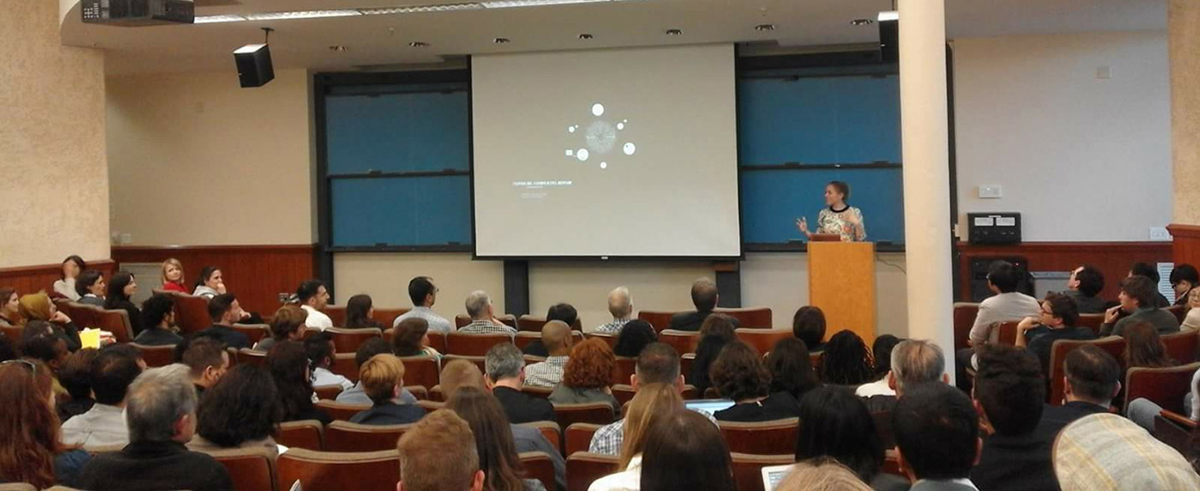2017 American Ethnologist Society Annual Conference

Dinner roundtable with Natalia Almada, Anand Pandian, and Angela Garcia
Monday, July 10, 2017
The American Ethnological Society held its 2017 annual spring conference at Stanford University from March 30 to April 1, 2017. This year, the conference centered on “Exposure” as a theme, tackling topics and methods that treat exposure as a ground for making sense of urgent issues in the world today.
Exposure has long been part of many a knowledge maker's toolbox, and it is certainly indispensable today for whistleblowers, community activists, and investigative journalists who use exposure for their progressive projects of speaking truth to power. Over the years, no less now in the era of WikiLeaks, anthropologists have strived to mobilize methods of exposure for human enhancement, to illuminate otherwise unseen forces of domination with the hope of fostering new political potentials.
The conference examined, in different sociocultural contexts, how exposure is currently undergoing transformation, how its normalization is shifting with rapid changes in technology, how exposure is morphing in relationship to affective economies, and how anthropologists have historically handled exposure. It questioned what new work must be done in and outside of the academy in order to better understand as well as influence the shifting authority of this keyword in people’s lives.
The well-attended conference provided three days of lively discussions including 3 plenary sessions, 65 panels and roundtables, and several graduate students workshops and mixers. Stanford anthropology professor Matthew Kohrman, who organized the conference, hopes this conference will inspire attendees to conjure, visualize, and broadcast new reflections on exposure, its histories, processes, discourses, sentiments, and transformational effects.

Deborah Thomas delivering her keynote titled: "Exposure, Complicity, Repair"

Didier Fassin in his plenary titled: “Blow-Up: Exposing through Ethnography”

AES Editorial Intern and Stanford University PhD candidate Eda Pepi presenting her research


